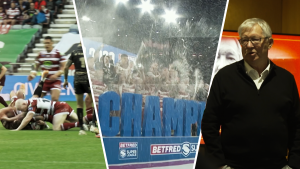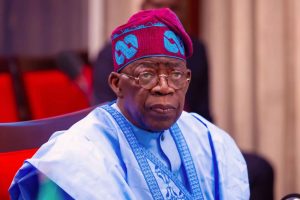At last the world notices Japan rugby coach Jamie Joseph


For Japan rugby coach Jamie Joseph, recognition and expectation arrived at about the same time and in equal measure.
Joseph has an impressive rugby resume from his native New Zealand but, for much of his coaching career, he operated beneath the radar.
It wasn’t until Japan beat Ireland in one of the biggest upsets in Rugby World Cup history that the wider rugby world sat up and took notice. The Irish were ranked No. 1 heading into the Rugby World Cup in Japan.
For the first time his name was linked with the All Blacks head coaching role which will become available when Steve Hansen steps down after the current tournament. Until now Ireland’s Joe Schmidt, Wales’ Warren Gatland and even Scotland’s Vern Cotter were perceived as stronger candidates.
But just as New Zealand began to pay court to Joseph he appeared to rebuff their advances. According to media reports, he is close to signing a contract extension with Japan Rugby, ruling him out of contention for the All Blacks’ job at least in the near future.
It may be that because he was coaching a “Tier Two” nation he wasn’t seen immediately as All Black coaching material. Japan’s unbeaten start to the World Cup — it’s wins over Russia, Ireland and Samoa in Pool A — have caused many to revise that view.
Joseph’s resume shows an almost unique collection of qualifications.
As a player he was an All Black — a member of New Zealand’s 1995 World Cup squad — and a New Zealand Maori representative. Later he played 10 tests for Japan, appearing at the 1999 World Cup. He made 86 appearances for Otago province, winning a National Provincial Championship title in 1991.
As a coach, he guided the Highlanders to their first Super Rugby title and New Zealand Maori to two international wins over England. He took charge of the Japan national team in 2016 in the wake of the Eddie Jones era and its development has been his masterwork.
Joseph now finds himself a victim of his own success. Until this World Cup, Japan rugby fans accepted any win over a Tier One nation with surprise and gratitude; now they’re expected to win.
“No one thought we could beat Ireland and now they think we can win every game we play. That’s how silly it is,” Joseph said after Japan’s win over Samoa
The qualities Joseph has shown as Japan coach — clarity of purpose, loyalty, defiance of norms and acceptance of underdog status — are likely developments of his own playing career.
Joseph was born into a prominent New Zealand rugby family. His father, Jim, was a prop in the Marlborough provincial team that held the Ranfurly Shield, New Zealand’s premier challenge trophy, for two seasons in the early 1970s.
He may have been too young to appreciate the achievement at the time, as tiny Marlborough took on and defeated much larger and more powerful provinces. But it must have become part of family lore and helped hone a sense of the potential of the underdog.
Joseph displayed talent at an early age and was quickly selected for the Otago provincial team after moving to that South Island city to study at University.
The ethos of Otago province runs deeply through his coaching style — an emphasis on strong forward play and sound basics alloyed to a delight in expressive back play.
That may come from the two elements of Dunedin city and Otago province — the land and the university. Pride in the land gives Otago a sense of separateness from the rest of New Zealand, of simple values, while the university brings exuberance, defiance of norms.
At the same time Joseph has always followed his own course. He played 20 tests for the All Blacks but left New Zealand aged only 25 to play in Japan. He has never looked back.








